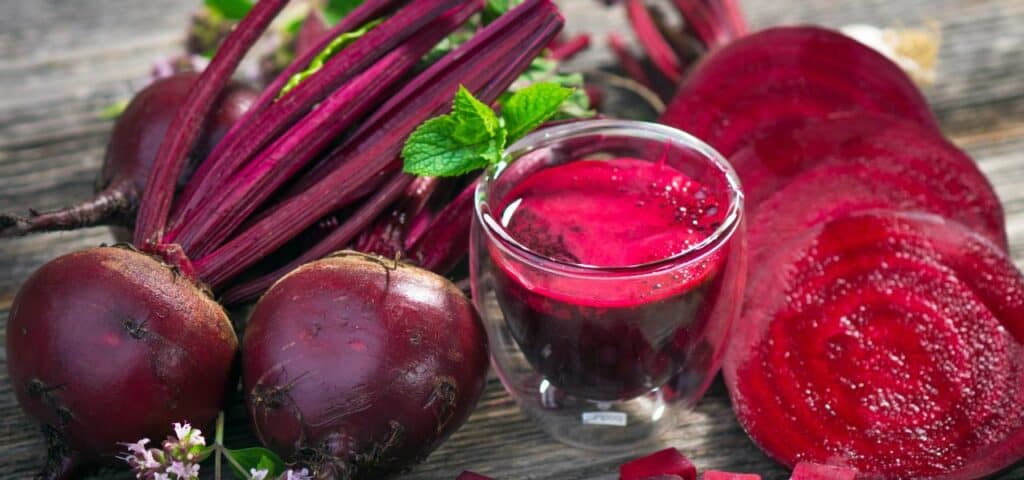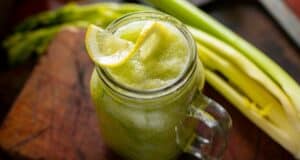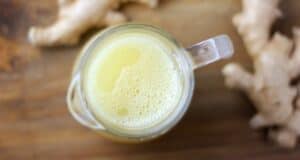As someone who has always struggled to get going in the morning, I’m always searching for ways to feel more energized and awake. Recently, I discovered the surprising health benefits of drinking beet juice in the morning, and it has completely transformed my routine.
Not only does beet juice give me a natural boost of energy, but it has also improved my overall health in ways I never expected.
In this article, I’ll share the benefits of beet juice, how it can improve skin health, blood pressure, workout benefits and much more.
The Surprising Health Benefits of Drinking Beet Juice Daily
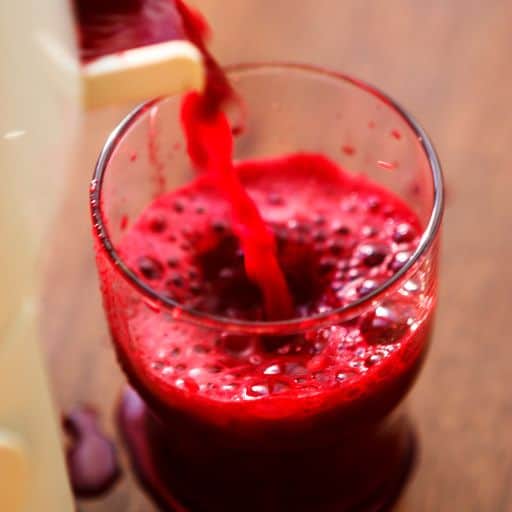
Drinking beet juice daily has numerous health benefits that many people are unaware of. Beet juice is rich in vitamins and minerals our bodies need to function correctly. It is an excellent source of vitamin C, iron, magnesium, and potassium, all essential for good health and boosting our immune system.
Beet juice is high in antioxidants, which can help to protect our cells from damage caused by free radicals. This may help to reduce the risk of chronic diseases such as cancer, heart disease, and Alzheimer’s.
One of the most significant benefits of drinking beet juice daily is its ability to improve digestion and detoxify the body. The nitrates found in beet juice help to increase blood flow to the digestive tract, enhancing the absorption of nutrients and reducing inflammation. These are the same nitrates that are responsible for helping lower blood pressure too.
Beetroot contains betanin, which is advantageous for the liver’s function which serves as a filtration organ. Beetroot juice cleanses the liver and help detoxify it.
Nutritional Information of Beetroot Flesh
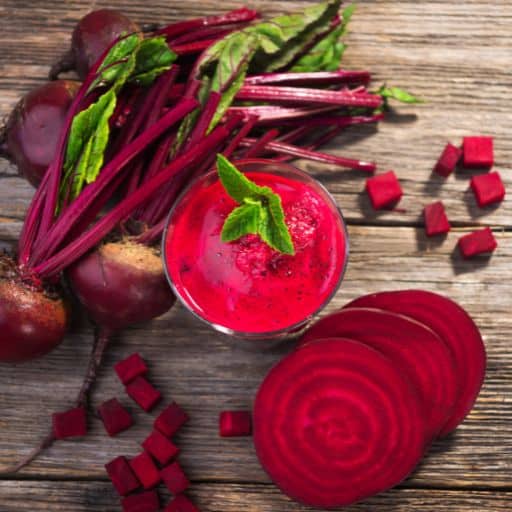
Composition of raw red beetroot flesh per 100g
| Compounds | Beetroot Flesh | Beetroot Leaves |
|---|---|---|
| Water (g) | 91.3 ± 4.29 | 91.00 ± 4.00 |
| Protein (g) | 1.89 ± 0.3 | 2.20 ± 0.5 |
| Carbohydrate, by difference (g) | 7.23 ± 2.33 | 4.33 ± 1.5 |
| Fiber, total dietary g3 | 3.25 ± 0.55 | 3.7 |
| Sugars, total (g) | 6.76 ± 1.23 | 0.50 |
| Total lipid (fat) (g) | 0.15 ± 0.05 | 0.13 |
| Ash (g) | 1.08 ± 0.72 | 2.33 |
| α-Carotene (μg) | 22.0 ± 2.03 | 3.5 ± 0.5 |
| β-Carotene (μg) | 0 | 11.64 |
| Lycopene (μg | 30 ± 0.3 | 0 |
| Lutein + zeaxanthin (μg) | 0 | 1.503 |
| Betaine (μg) | 128.7 ± 22.0 | 0 |
| Folate (μg) | 109 | 15 |
| Niacin (mg) | 0.334 | 0.400 |
| Vitamin A, IU | 0 | 6.326 |
| Vitamin B6 | 0.067 | 0.106 |
| Vitamin C (mg) | 7.2 ± 2.5 | 30 |
| Sodium, Na (mg) | 78.0 ± 5.0 | 226 |
| Potassium, K (mg) | 325 ± 4.5 | 762 |
| Phosphorus, P (mg) | 40.00 | 41 |
| Magnesium, Mg (mg) | 23.0 ± 2.0 | 70 |
| Calcium, Ca (mg) | 16 ± 3.5 | 117 |
| Manganese, Mn (mg) | 0.359 ± 0.04 | 0.391 |
| Zinc, Zn (mg) | 0.365 ± 0.015 | 0.38 |
| Copper, Cu (mg) | 0.075 | 0.191 |
| Iron, Fe (mg) | 0.80 | 2.57 |
How Beet Juice Can Help Manage Blood Pressure

If you suffer from high blood pressure, you may be surprised to learn that drinking beet juice may help to manage your condition. Beets are high in nitrates, which can help to dilate blood vessels and improve blood flow.
Additionally, the nitrates found in beet juice help to reduce inflammation in the blood vessels, reducing the risk of atherosclerosis and other cardiovascular diseases. The Polish Heart Journal published the results of a study that showed the daily intake of 250mL of beetroot juice for four weeks led to a sustained reduction in blood pressure, improved endothelium-dependent vasodilation, and a decrease in arterial stiffness.
To get the most benefits from drinking beet juice for blood pressure, it’s best to consume it daily. Making raw beet juice at home is preferable. Choosing a high-quality product free from added sugars and preservatives is essential if you plan on buying beet juice. Alternatively, consider a beet powder supplement.
Speak with your doctor before adding beet juice to your diet, especially if you are taking medication for high blood pressure.
Beet Juice and Kidney Disease: Understanding the Benefits (and Risks)
If you suffer from kidney disease, you may be surprised to learn that drinking beet juice can benefit your condition. Like the benefits of beet juice for high blood pressure, the high nitrates help improve blood flow to the kidneys, which can assist with improved filtration and waste removal.
Consuming excessive amounts of beetroot juice may lead to the development of kidney stones due to the high levels of oxalates present in it. These oxalates can contribute to the formation of calcium oxalate kidney stones in certain individuals. The risk of developing kidney stones from beetroot juice consumption is generally low and varies from person to person, depending on various factors like age, gender, diet, and overall health status.
It’s important to note that if you have kidney disease, you should speak with your doctor before adding beet juice to your diet. While beet juice can benefit some people with kidney disease, it may not be appropriate for everyone. Your doctor will want to monitor your kidney function to determine if there is any improvement.
Benefits of Drinking Beet Juice for Men’s Health

Drinking beet juice may also have benefits for men’s health. It has long been touted as as a natural remedy for erectile dysfunction, however, I was unable to find any medical studies proving this theory correct.
A study conducted in Trinidad reports that beetroot, juiced or blended, is a popular functional food among breast, prostate and colorectal cancer patients. A 2022 study suggests that the anti-inflammatory properties of betalin in beets may reduce and even prevent prostate cancer, however, this was based on eating beetroot rather than making juice.
A study of beetroot and leaf extracts published in Phytotherapy Research 2021 reveals that beet extracts have important anti-cancer effects against prostate cancer cells.
Drinking beet juice can also help to improve athletic performance in men. The nitrates found in beet juice can help to improve blood flow to the muscles, reducing fatigue and improving endurance. This can lead to improved athletic performance and faster recovery times.
Drinking Beet Juice Before a Workout: Benefits and How It Works
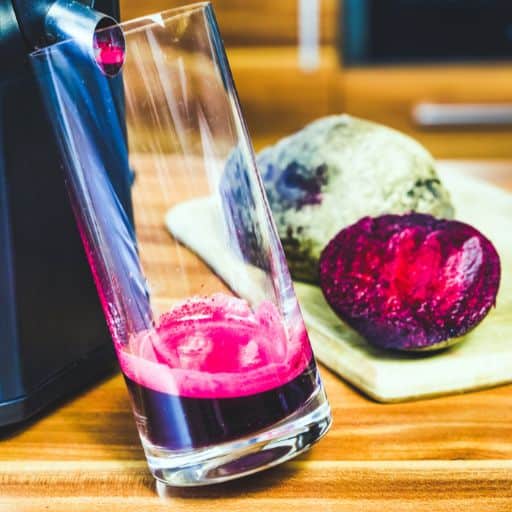
Many athletes and fitness enthusiasts swear by drinking beet juice before a workout, and for a good reason. Beet juice is high in nitrates, which can help to increase blood flow to the muscles, improving endurance and reducing fatigue. The nitrates found in beet juice can help to improve the efficiency of the mitochondria in our cells, which are responsible for producing energy. This can lead to improved athletic performance and faster recovery times.
This is discussed further in the Journal of the Internation Society of Sports Nutrition, including the type II muscle fibers responsible for generating power and strength. Drinking beetroot juice has been found to improve the way these muscles work by enhancing the release and reabsorption of calcium from a structure called the sarcoplasmic reticulum.
This means that the muscle fibers become more efficient at using calcium, which can increase strength production. So, drinking beetroot juice may help us perform better in activities that require strength and power, like weightlifting or sprinting.
To get the most benefits from drinking beet juice before a workout, consuming it about 30-60 minutes before exercise is best. This will give your body enough time to absorb the nitrates and convert them into nitric oxide, which is responsible for increasing blood flow to the muscles.
How Drinking Beet Juice Benefits Women’s Health

Drinking beet juice can also have significant benefits for women’s health. One of the most significant benefits is its ability to reduce menstrual pain. The nitrates found in beet juice can help to reduce inflammation and improve blood flow, reducing the severity of menstrual cramps.
Additionally, the iron and potassium combination in beet juice can help maintain iron levels in your body. The use of beetroot juice as a herbal therapy for fibroids is also discussed in the Journal of Enthnopharmacology.
Beet Juice and Cancer Prevention
Drinking beet juice may also help to reduce the risk of cancer, and is also used to promote health in cancer patients, according to the Journal of Cancer Prevention (2021). Beets are high in antioxidants, which can help to protect our cells from damage caused by free radicals. Additionally, the nitrates found in beet juice can help reduce inflammation, which is believed to be a contributing factor in cancer development.
Just don’t overdo it with the beet juice, otherwise, it could also contribute to the development of Cancer. High nitrite levels have been linked to the development of various cancers, including colon cancer. The maxiumum dietary intake of nitrites per day is recommended at 3.7mg/kg of bodyweight (Food Science and Nutrition).
How Drinking Beet Juice Can Improve Skin Health
Drinking beet juice can also have a significant impact on the health of our skin. Beets are high in vitamin C, which is essential for collagen production. Collagen is the protein that gives our skin elasticity and firmness, and a lack of collagen can lead to wrinkles and sagging skin.
Additionally, the antioxidants found in beet juice may help to protect our skin from damage caused by UV rays and pollution. This may help reduce the signs of aging and keep our skin youthful and healthy.
Beet juice may also help reduce inflammation in the skin, which can lead to various skin conditions such as acne, eczema, and psoriasis. The nitrates found in beet juice can help to increase blood flow to the skin, reducing inflammation and promoting healing.
Tips for Making and Drinking Beet Juice
If you’re interested in adding beet juice to your daily routine, there are a few tips to keep in mind.
-
- Make your own fresh beet juice at home for maximum nutrients
-
- Drink beet juice first thing in the morning on an empty stomach, this will help your body absorb the nutrients more effectively.
-
- Start off slowly with a small portion of beet juice or include some beetroot in other juicing recipes. Let your body get used to the powerful nutrients then increase your intake over time
-
- Watch out for beeturia! (see below)
Side Effects Of Beetroot Juice
You can safely drink a glass of beetroot juice without any risk. However, underlying health conditions and excess consumption might cause some side effects listed below.
Chronic Hypotension
People with considerably low blood pressure should limit their intake of beet juice. As mentioned, the nitrates in beets can decrease pressure in the bloodstream.
If the drop is too much, it could lead to chronic hypotension accompanied by fatigue, dizziness, and headache.
Beeturia
Beeturia is when your urine color changes to pink or dark red after drinking beet juice. I have had this happen to me, and it freaked me out!
But don’t worry. The red pigments of the beetroots cause it and is not harmful to the body. Just be prepared for this after you drink beet juice. It can also change the color of your stools to a more reddish color. If this happens, back off the beetroot juice a little.
Allergic Reactions
Beetroots may trigger acute allergic reactions that make your body hypersensitive. Although this is rare, asking your physician about consuming beet is crucial if you are sensitive to allergens.
Generation of Carcinogenic Forming Compounds
Beetroot is the highest nitrite containing vegetable and while this is beneficial in small doses, drinking too much beetroot juice can have an adverse affect. Food and Science Nutrition published a critical review in 2021 explaining that nitrates in beetroot are converted to nitric oxide (NO) after consumption. Drinking beetroot juice may easily increase nitrate levels above the acceptable daily intake. In simplified terms:
-
- Drinking beetroot juice can increase nitrate levels
-
- This increase can go beyond the acceptable daily intake
-
- High nitrate levels stimulate the formation of N-nitroso compounds (NOC’s)
-
- NOCs are known to be carcinogenic. However, Vitamin C helps to block these in the body
-
- High nitrate levels may also cause other negative effects
Start Your Day Right with a (Small) Glass of Beet Juice
Drinking beet juice in the morning is an excellent way to start your day on the right foot. It will give you a natural energy boost and has numerous health benefits that can improve your overall well-being. But be aware too much of a good thing can then turn bad. So keep your beetroot juice consumption to a small portion and check in with your doctor regularly.
Citations:
Krajka-Kuźniak V, Paluszczak J, Szaefer H, Baer-Dubowska W. Betanin, a beetroot component, induces nuclear factor erythroid-2-related factor 2-mediated expression of detoxifying/antioxidant enzymes in human liver cell lines. Br J Nutr. 2013 Dec;110(12):2138-49. doi: 10.1017/S0007114513001645. Epub 2013 Jun 17. PMID: 23769299.
Beręsewicz A, Gajos-Draus A. Enjoy your heart-beets. The role of dietary inorganic nitrate in cardiovascular health. Kardiol Pol. 2016;74(5):403-10. doi: 10.5603/KP.a2016.0028. Epub 2016 Mar 11. PMID: 26965924.
Fugh-Berman A, Balick MJ, Kronenberg F, Ososki AL, O’Connor B, Reiff M, Roble M, Lohr P, Brosi BJ, Lee R. Treatment of fibroids: the use of beets (Beta vulgaris) and molasses (Saccharum officinarum) as an herbal therapy by Dominican healers in New York City. J Ethnopharmacol. 2004 Jun;92(2-3):337-9. doi: 10.1016/j.jep.2004.03.009. PMID: 15138021.
Domínguez R, Maté-Muñoz JL, Cuenca E, García-Fernández P, Mata-Ordoñez F, Lozano-Estevan MC, Veiga-Herreros P, da Silva SF, Garnacho-Castaño MV. Effects of beetroot juice supplementation on intermittent high-intensity exercise efforts. J Int Soc Sports Nutr. 2018 Jan 5;15:2. doi: 10.1186/s12970-017-0204-9. PMID: 29311764; PMCID: PMC5756374.\
H. Zamani, M. E. J. R. de Joode, I. J. Hossein, N. F. T. Henckens, M. A. Guggeis, J. E. Berends, T. M. C. M. de Kok & S. G. J. van Breda (2021) The benefits and risks of beetroot juice consumption: a systematic review, Critical Reviews in Food Science and Nutrition, 61:5, 788-804, DOI: 10.1080/10408398.2020.1746629
Tan ML, Hamid SBS. Beetroot as a Potential Functional Food for Cancer Chemoprevention, a Narrative Review. J Cancer Prev. 2021 Mar 30;26(1):1-17. doi: 10.15430/JCP.2021.26.1.1. PMID: 33842401; PMCID: PMC8020175.
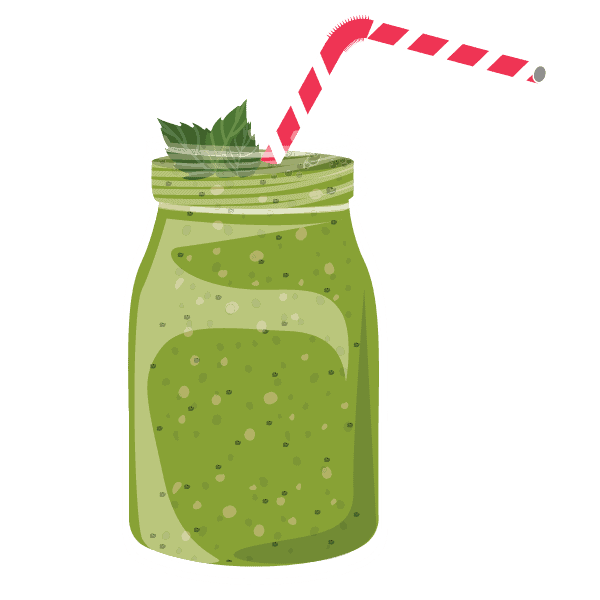
Get access to the latest juicing recipes, product reviews, and upcoming brand promotions delivered straight to your inbox! 🍍

